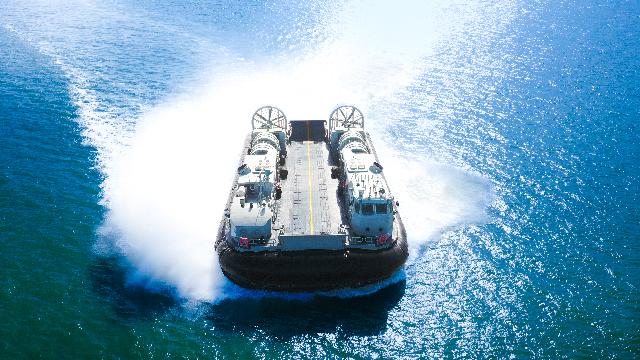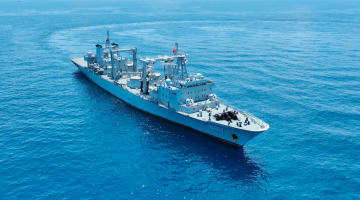By Lei Chenxi and Zhao Xuelin
It is reported that the US, the UK and Australia recently agreed to relax their restrictions on the export of weapons and equipment and exempt some military products from export licensing among themselves. This is believed to mark a substantial step forward in the three countries' cooperation on nuclear submarine and advanced military technologies under the AUKUS framework, drawing close attention from all parties.
Ever since the three countries formed the AUKUS, London and Canberra have been urging Washington to further relax its restrictions on technology export and information sharing. America's International Traffic in Arms Regulations (ITAR) vigorously restricts the transfer and export of technologies and the export of military products to all countries, including its allies. In the beginning, Washington agreed in principle to share relevant technology and information pertaining to nuclear-powered submarines in the AUKUS framework. Yet it has exercised great caution and reservation in the provision of equipment, technology and information concerning hypersonic weapons and underwater combat capabilities, and didn't release news about a new rule until recently. The US Department of State issued a statement on August 15 that as the US believes the UK and Australia have adopted equivalent export restrictions to its own and offered mutual export exemption, the US side will soon launch a new rule to amend the ITAR, whereby it will export military products to the UK and Australia without licensing.
The new rule is expected to significantly streamline the process for the US to export military products to the two countries. Records show that the US Department of State used to sign the export license for about 3,800 pieces of military products each year for Australia in accordance with ITAR, with the license taking up to 18 months to obtain. Now the new rule will exempt over 70% of the military products exported to Australia from licensing, and the time needed to get the license for those unexempted products will be largely shortened.
At the same time, over 80% of the dual-purpose goods and low-intensity military products under the administration of the US Department of Commerce will be exempt from export licensing for Australia too. All three members of AUKUS view this as a major step towards their cooperation. The US Department of State said the new rule will facilitate military trade worth up to billions of US dollars among the three countries, integrate their innovative capabilities, and consolidate the foundation for their defense industry.
What the international community should beware of is that America's relaxation of export restrictions on weapons and equipment not only has opened a gate for the AUKUS members to share advanced weapons and equipment and sensitive technologies, but will also lend a heavy blow to the international nuclear nonproliferation regime.
The AUKUS has two pillars – one is the Virginia-class nuclear submarine sold by the US to Australia and the next-generation submarine to be jointly built by the UK and Australia; the other is the three members' coordinated development of advanced technologies and their accelerated application in the military domain.
Previously, the high threshold for sharing cutting-edge technologies set by the US has prevented progress on their cooperation on the second pillar. But now the export exemption will pave the way for their quickened technological collaboration in such areas as AI, hypersonic weapons, and underwater combat. Moreover, as the US will sell at least three Virginia-class nuclear submarines to Australia starting from the beginning of the 2030s, the new rule will also facilitate the export of relevant carrier-borne weapons and equipment.
Ever since the formation of AUKUS, the US, the UK, and Australia have kept pushing their cooperation on nuclear submarines and other advanced military technologies in the name of preserving security and stability in the Asia Pacific. In fact, their actions have only aggravated the resurgence of the Cold War mentality and gravely damaged regional peace and stability. The Asian Pacific region is a land of peaceful development, not a chessboard for geopolitical games. The three countries must abandon their Cold War mentality, stop bloc confrontation as soon as possible and do something truly conducive to peace and stability in the region and beyond.
(The author is from CNNC Strategic Planning Research Institute)









